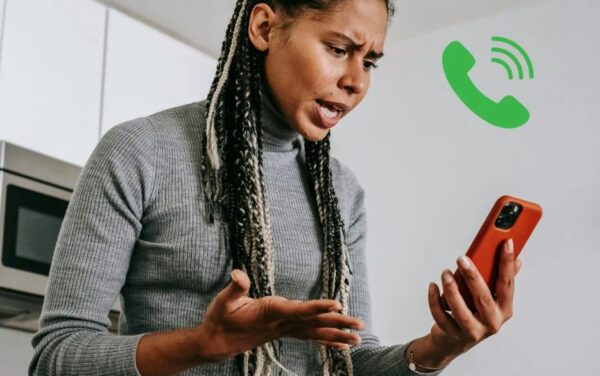Lifestyle
Is it legal to record a phone call without telling the other person?
 Picture this: You’re on the phone with someone; maybe a business partner, a customer service agent, or even a friend who has a habit of denying things they’ve said. You think, “Let me record this call so I have proof.” But wait—is that even legal in South Africa?
Picture this: You’re on the phone with someone; maybe a business partner, a customer service agent, or even a friend who has a habit of denying things they’ve said. You think, “Let me record this call so I have proof.” But wait—is that even legal in South Africa?
Understanding the nuances of this law is crucial for anyone considering recording a conversation, as there are specific conditions under which recording is permissible.
One-Party Consent Rule Regarding Recording a Conversation
South African law generally operates under a one-party consent rule. This means that it is legal to record a conversation if at least one of the parties involved in the conversation consents to the recording. In practical terms, if you are a participant in the conversation, you have the right to record it without informing the other participants. For example, if you are having a phone conversation or an in-person meeting, you can legally record the discussion as long as you are part of it.
Third-Party Recording
Recording a conversation without being a participant and without the consent of at least one of the parties involved is illegal under RICA. This type of recording is often referred to as third-party recording. For instance, if you are not part of a meeting but decide to secretly record it using a hidden device, this would constitute illegal surveillance and could lead to severe legal consequences.
Specific Situations and Exceptions
There are particular situations where the legality of recording a conversation becomes more nuanced:
- Employment and Workplace Monitoring: Employers can monitor and record conversations in the workplace if employees are made aware of this practice. This often involves clear policies outlined in employment contracts or company handbooks. For example, call centres typically inform both employees and customers that calls are recorded for quality and training purposes.
- Public Interest and Law Enforcement: Law enforcement agencies may record conversations as part of an investigation, but this typically requires a court order or warrant. In cases involving public interest, such as preventing a crime, the courts may allow recordings as evidence, provided legal procedures are followed.
Potential Legal Consequences
Recording a conversation without the necessary consent can lead to significant legal ramifications. If found guilty of illegal recording, you could face criminal charges, which may include fines or imprisonment. Additionally, any evidence obtained through illegal recording is likely inadmissible in court, which can severely impact legal proceedings, such as civil lawsuits or criminal trials.
Practical examples
To illustrate, consider a scenario where Alice records a conversation with Bob without informing him. Since Alice is part of the conversation, this recording is legal under the one-party consent rule. However, if Charlie, who is not part of the conversation, records Alice and Bob’s discussion without their consent, Charlie’s actions would be illegal under RICA.
In another example, XYZ Corporation informs its employees through their employment contracts that all workplace communications are monitored. This preemptive notification ensures that recordings are legal and can be used for purposes like quality control or resolving disputes.
Given the complexities of RICA, it is advisable to seek legal counsel if you are uncertain about the legality of recording a conversation in specific circumstances. Legal professionals can provide guidance tailored to your particular situation, ensuring that you comply with the law and avoid potential legal pitfalls.
While recording a conversation is generally legal in South Africa with one-party consent, it is essential to be mindful of the specific context and legal requirements. Unauthorized recordings can lead to serious legal consequences, so always ensure that you understand and adhere to the provisions of RICA when considering recording any conversation.










